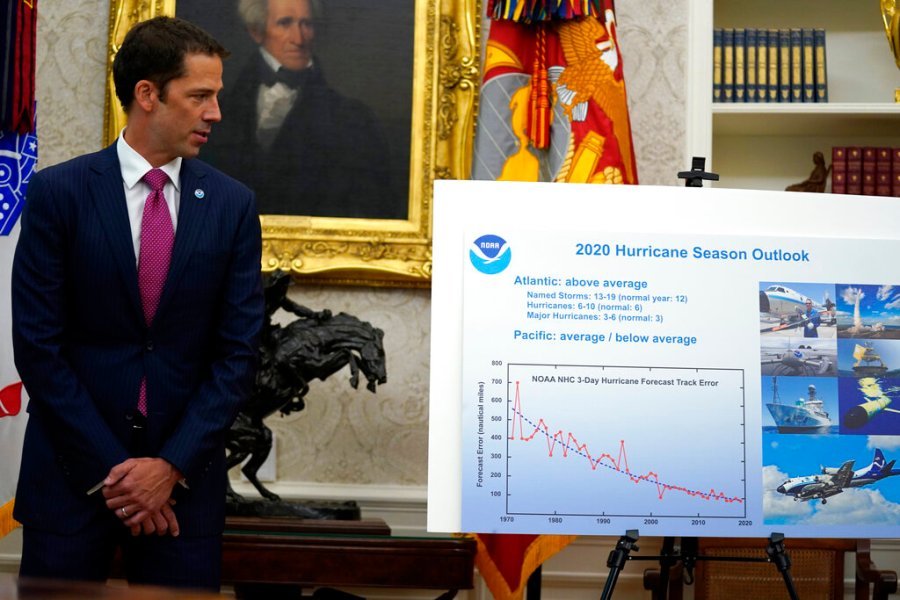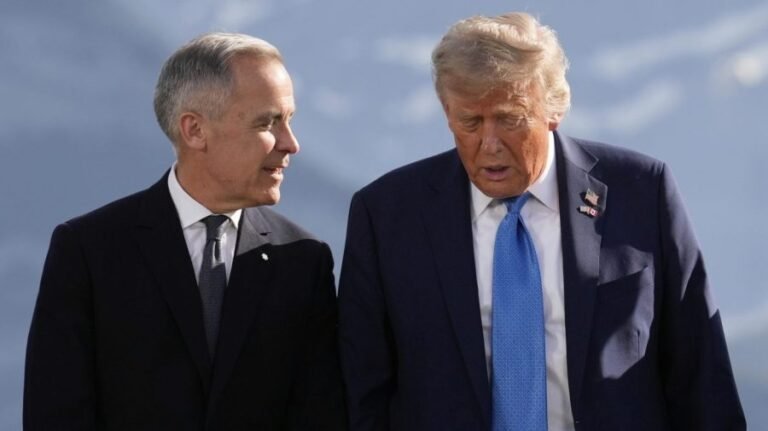
The new head of the National Oceanic and Atmospheric Administration, Neil Jacobs, takes office at a fraught time, amid a government shutdown, historic proposed cuts, and the hollowing out of its scientific core. But as its former administrators, we believe this atmospheric scientist and agency veteran has a critical responsibility. We are somewhat heartened by testimony Jacobs gave during his confirmation hearing, and eagerly anticipate his plan for his first hundred days, which will outline how he intends to deliver on those promises.
The three of us served under Democratic presidents. But our hopes for Jacobs’s tenure have nothing to do with party persuasion. Like all of our predecessors, we shared an ironclad commitment to ensuring the integrity of the science and services the National Oceanic and Atmospheric Administration provides to the American public.
We hope and see some evidence that Jacobs shares this commitment.
NOAA has built a reputation for world-class research, and for amassing and freely sharing its wide swath of essential data and services for the public’s benefit. For every dollar invested in the National Oceanic and Atmospheric Administration, the country’s return is orders of magnitude greater in productivity, transportation, farming, fishing, business development, and savings to communities in insurance and public safety.
Sen. Ben Ray Luján (D-N.M.), citing Project 2025, asked Jacobs whether, if forecasting is commercialized, the public should have to pay for access to forecasting data to protect their families and homes from natural disasters.
“No,” Jacobs testified. “That’s an essential service that all Americans deserve.”
To Sen. Tammy Baldwin (D-Wis.), he responded, “It’s my belief that [weather and climate] data should be readily accessible to the public.”
We strongly agree. We hope Jacobs will ensure that promise never becomes blocked by paywall or contingent on party affiliation. No American should be forced to pay twice for the fruits of their investment in the National Oceanic and Atmospheric Administration’s research and products. These are basic tools of public safety.
Jacobs also testified that he would not sign off on inaccurate statements due to political pressure. That represents progress since his prior tenure as acting administrator, when the agency issued a false statement supporting President Trump’s altered projection of a hurricane path during “SharpieGate.” We fully expect that similar tests will emerge to his commitment to the integrity of NOAA’s science, and we hope Jacobs will be bolstered by the scientific community, including ourselves.
At the same time, we seriously wonder how Jacobs can keep his promise to beef up staffing: “I can assure the Committee that I will do my best to ensure this team of scientists, engineers, forecasters and uniformed officers have the resources and leadership needed to fulfill their mission of science, service and stewardship.” Further, he testified, “I don’t know that you could spend too much on the research.”
This would be impossible, given his stated support of the president’s fiscal 2026 budget. It slashes the agency by about 27 percent, the largest cut in decades. It could well mean additional layoffs and the decimation of research — on top of the recent loss of more than 2,000 employees. Every dollar stripped from the National Oceanic and Atmospheric Administration means weaker storm warnings, slower disaster response, and diminished capacity to protect lives, coasts, and communities. We urge Jacobs to be faithful to the mission, keep his word, and fight for the resources and people the agency needs to save lives and enable economic opportunity.
We appreciate Jacobs’s stated commitment to addressing illegal, unregulated and unreported (IUU) fishing and strengthening seafood monitoring. He says he will prioritize research on the Great Lakes. But again, those ambitions cannot be squared with a budget that removes nearly a third of the National Oceanic and Atmospheric Administration’s capacity.
Sen. Lisa Blunt Rochester (D-Del.) said Jacobs had praised the agency’s Sea Grant partnership. It helps communities apply big data to help with economic development, resiliency and safety. But the budget he supports would eliminate it.
Jacobs has used fancy footwork in response, saying “a lot of that work is being transitioned from the research side to the operations side,” citing the National Weather Service and the National Oceans Service. “Their mission essential functions will continue,” he testified.
On that point, we would caution that embedding research within operations — under the guise of streamlining — has repeatedly backfired both in government and in the private sector, where urgent operational needs inevitably crowd out long-term research investments.
On climate change, Jacobs halfheartedly acknowledged, “Uh, yes, there’s influence” by human beings. We salute that admission. And we intend to hold him accountable to his training as a scientist.
NOAA has been a richly productive federal agency for half a century. Each administration has improved lives, livelihoods and lifestyles. The measure of Jacobs’s leadership will be whether he defends the science, mission, and indispensable staff — or presides over the dismantling of a trusted and lifesaving institution.
Jane Lubchenco, Ph.D., a marine ecologist and environmental scientist, is the former undersecretary of commerce for oceans and atmosphere and the 9th administrator of the National Oceanic and Atmospheric Administration. Kathryn Sullivan, Ph.D., a geologist, oceanographer and former astronaut, is the former undersecretary of commerce for oceans and atmosphere and the 10th administrator of the National Oceanic and Atmospheric Administration. Richard Spinrad, Ph.D., an oceanographer, is the former under secretary of commerce for oceans and atmosphere and the 11th administrator of the National Oceanic and Atmospheric Administration.


